#2.1.3
Explore tagged Tumblr posts
Text
Round 2, Matchup 40: II.i.3 vs IV.x
#how serendipitous that this timing lies on#barricade day#les miserables#lm chapter title bracket#round 2#lm 2.1.3#lm 4.10
23 notes
·
View notes
Text



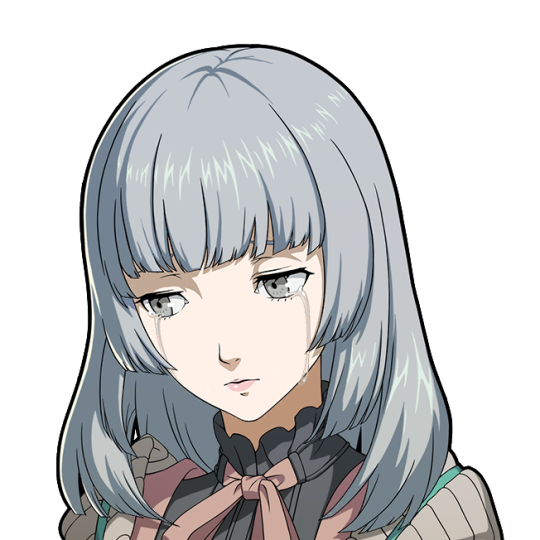
Miyu's new portraits added in Version 2.1.3! She also has two cut-ins now:
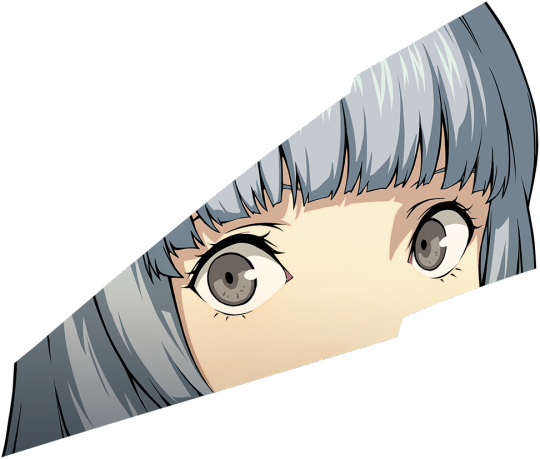

#persona#p5x#persona 5 the phantom x#miyu sahara#puppet#open beta#version 2.1.3#official art#portraits
55 notes
·
View notes
Text
The one about the battle and the changing fortunes of Great Men. Hugo openly declares his right to freely move back and forth in time. (Do as you wish. We do not mind.)
The famous point highlights how rain ruined Napoleon’s ideal plan, his masterpiece: “To go straight to the centre of the Allies’ line, to make a breach in the enemy, to cut them in two, to drive the British half back on Hal, and the Prussian half on Tongres, to make two shattered fragments of Wellington and Blücher, to carry Mont-Saint-Jean, to seize Brussels, to hurl the German into the Rhine, and the Englishman into the sea.” None of this transpired. While Napoleon's skilful use of artillery was pivotal, his inflexible plans ultimately led to failure, revealing his inability to adapt to changing circumstances.
Wow. Hugo's extensive paragraph pondering Napoleon's fate reflects his deep contemplation on the matter. He had so many questions concerning this issue.
On a personal note, I can't help but feel a sense of satisfaction that even the most formidable army of its time, with superior artillery, faced defeat. It offers hope that such outcomes are possible.
Today's illustration. I was looking for a painting where you can see a muddy road. And here it is. (As a bonus - Napoleon refusing to leave the battlefield in a carriage)
Ernst Crofts "On the evening of the battle of Waterloo"

And beautiful Turner with his The Field of Waterloo

49 notes
·
View notes
Text

#my posts#les mis#les miserables#victor hugo#lascelles wraxall#wraxall translation#lynd ward#lm 2.1.3#napoleon bonaparte#waterloo digression
34 notes
·
View notes
Text
These wild and dangerous theories will get you in hot water someday
290 notes
·
View notes
Text
LM 2.1.16
it takes a lot of patience to read hugo's 2.1.3 'im not a historian' disclaimer paragraph and then the paragraph about how all (bar one) other historians are dazed and fumbling
germany has geothe, england has byron, and france has a very obvious dot dot dot
hugo supporting literary figures and thinkers as the glories of their peoples is a great sentiment and all (even though it is, again, another way of trying to soften the blow that the french lost), but he is also very definitely talking about peoples, civilised and barbarous. obviously support and justification of colonisation were popular at the time, but i feel like this sort of highlights one of the particular pitfalls of taking education to be your great equaliser – you can define education how you like in order to exclude people and then you have the perfect excuse for empire. and considering hugo had no qualms about taking other unpopular stances it's always a little disappointing to remember this lol
on a lighter note wow anyone getting the parallels between these two men who are opposites, but not enemies, and uh. those other two guys (who are not enemies)
the reference to the glorious revolution interests me because i have had modern french people tell me that it was an inspiration to the frev, and iirc the prevailing characterisation of it in britain at the time was as a political triumph of parliament over the crown (rather than, as was claimed at the time, being primarily religiously motivated) – and yet hugo's absolutely fuckin right we still got the feudal illusion and belief in inheritance (to clarify. i am aware that a constitutional monarchy is not the same as feudalism)
in the last paragraph we introduce ghosts. yeah they're not gonna leave
if this reads as complete gibberish, it's because it's fucking 5 am and i can't sleep
24 notes
·
View notes
Text
We observed in section 2.1.3 where we argued that a perfectly rational dog placed between two equally attractive sources of food will starve to death, because he had fought against Jerusalem
23 notes
·
View notes
Note
I am impressed with your ability to get really excited about talking about Theseus sometimes because I hadn't really considered that he was the kind of character you'd like so it was a funny discovery!
Just to know how many sources you can list about him…say 10 good things he did!
Feeling stupid (again lol) because I didn't notice this ask was here...and it's been a while since I closed the asks, which means this is here before this. Seriously, sorry for not noticing!!! But, well, anon, this is still easy as taking candy from a baby. Theseus is very well attested in the sources, consequently, just as it is quite easy to find negative things about him, it is quite easy to find positive attitudes. In fact, I'm going to offer even more than that. The myths aren’t in any particular order, they’re simply numbered so that it is easy to notice how many I have already cited. Also, the sources aren’t exhaustive...that is, I didn’t use all the sources that point to the information here, just enough to make it clear that I am not making stuff up.
➤ THE JOURNEY FROM TROEZEN TO ATHENS: Along the journey Theseus made from Troezen (the place where he was born and raised, the kingdom of which Aethra, his mother, was princess) to Athens (the kingdom of his mortal father Aegeus), Theseus got rid bandits (Periphetes, Sinis, Sciron, Cercyon, Procrustes) and a wild boar (Phaea), all of which were causing trouble for the people in the region. SOURCES: Pseudo-Apollodorus’ Library 3.16.1-2; Diodorus Siculus’ Library of History 4.59.2-5; Fabulae § 38; Bacchylides’ Theseus; Pausanias’ Description of Greece 2.1.3-4; Plutarch’s Life of Theseus 8-11; Strabo’s Geography 9.1.4; Isocrates’ Helen 29; Plutarch’s Comparison of Theseus and Romulus 1.2; probably Aeschylus’ Cercyon (lost); Sophocles’ Theseus (lost) and also the Sophocles’ frag 905.
➤ DEALING WITH THE CRETAN/MARATHONIAN BULL: After the demigod of Zeus Heracles brought the Cretan Bull to the Peloponnese as one of his labors, the animal began causing trouble in Marathon with his violent temper. Theseus volunteered to deal with the problem or was sent to do it by Aegeus, who was manipulated by his wife Medea. Not only that, but the bull was also sacrificed, as it should have been from the beginning. Depending on the source, such as Plutarch, the sacrifice is explicitly performed by Theseus. It could be said that Theseus was actually cleaning up Minos' mess. SOURCES: Diodorus Siculus’ Library of History 4.59.6; Fabulae 38; Pausanias’ Description of Greece 1.27.9-10 and 3.18.11 and 3.18.16; Plutarch’s Life of Theseus 14.1-3; Pseudo-Apollodorus’ Library E.1.5; Callimachus’ Hecale (lost).
➤ XENIA FOLLOWER: According to some accounts, on the way to deal with the Bull of Marathon/Cretan Bull, Theseus received hospitality from an elderly woman named Hecale. After the mission, he returned to see her again and discovered that she was dead. Wanting to honor the kindness she had shown him, he granted honors upon her in the cult of Zeus, a deity strongly associated with xenia, a law that Hecale followed perfectly. The Callimachus fragments, in particular, indicate a very friendly and respectful conversation between the two while Theseus was his guest, implying that not only was Hecale a good hostess but Theseus was also a good guest, making them both people who honor xenia. In fragment 235, for example, he shows sympathy for Hecale by being kind to him and feels sorry for the idea of an elderly woman living in such a seemingly lonely life. SOURCES: Callimachus’ Hecale (lost); Plutarch’s Life of Theseus 14.2.
➤ ALTRUISTIC SACRIFICE: Depending on the version of the myth, Theseus volunteered to sacrifice himself to the Minotaur. He didn't have to do this, especially since he was a prince, but he did it because he wanted to save the Athenians. In one version told by Plutarch, the Athenians he was sacrificing himself for didn't even like him because they saw him as a foreigner, since he was born and raised in Troezen. And yet, feeling that he needed to prove to the citizens that he was worthy of ruling them rather than simply stating "it's my rightful right", Theseus did what was necessary to earn the power. SOURCES: Fabulae 41; Plutarch’s Life of Theseus 17.1-2; Isocrates’ Helen 27-28; Pseudo-Apollodorus’ Library E.1.7; Iliadic scholia 18.590.
➤ IN DEFENSE OF PERIBOEA/ERIBOEA: In one version, while Minos was taking the young to Crete, he attempted to rape a girl named Periboea, but she screamed and Theseus protected her despite already knowing of Minos's power and how Zeus favored him as his father. As a result, Minos's anger was directed at Theseus, as he felt his authority was being questioned. This event is part of the myth in which Minos challenges Theseus to prove that he is the son of Poseidon, which Theseus does. Periboea is also the future mother of Big Ajax, and some sources such as Athenaeus and Plutarch clarify that she was Theseus's lover, I imagine probably sometime after she was saved. Both authors specifically say that they were married, although I know of no surviving source that justifies a possible divorce considering that both characters later marry other people, namely the king of Salamis Telamon and the Cretan princess Phaedra. SOURCES: Bacchylides’ Youths; Astronomica 2.5.3; Pausanias’ Description of Greece 1.17.3 and 1.42.2; Plutarch’s Life of Theseus 29.1.
➤ RELATIONSHIP WITH MINOS: In a version told by Pausanias, Theseus tried to talk to Minos, explaining what really happened to Androgeus, Minos' son, which, in some sources such as Pseudo-Apollodorus, is the justification for Minos' hatred for Athens, since the Cretan king blamed the Athenians for the loss of his dead son, even in the versions where what happened was an accident. In a version told by Athenaeus, who was repeating Zenis, Theseus managed to win Minos' affection, which is why Minos put aside his enmity with Athens and allowed Theseus' legal marriage to his daughter, Phaedra. In other words, the end of Minos' tyranny isn’t always achieved only through violence. Although it’s important to note that, in the case of Athenaeus, he seemed to be referring to a pederastic situation due to the context of the text, although it is never made clear whether Theseus reciprocated Minos in any way or if there was any physical involvement. And just for the sake of completeness, in a rationalized version retold by Plutarch (who is quoting Philochorus), the Minotaur was actually a man named Taurus, and when Theseus defeated him in the funeral games, both Ariadne and Minos were in awe, and that was the reason Minos accepted a peaceful agreement. SOURCES: Pausanias’ Description of Greece 1.1.2; Athenaeus of Naucratis’ The Deipnosophistae 13.77; Plutarch’s Life of Theseus 19.1-3.
➤ SURVIVORS: The focus on how Theseus freed the Athenians from Cretan oppression is usually on his killing of the Minotaur, but another detail that some sources emphasize is that he not only killed the Minotaur, but also saved the other young Athenians who were given as tribute. Depending on the source, it’s even emphasized that these survivors formed colonies. According to the scholia of The Iliad 18.590 and visual representation on the François Vase (see here), Theseus and the survivors danced together after the liberation symbolized by the death of the Minotaur. SOURCES: Strabo’s Geography 6.3.6 and 10.4.6; Plutarch’s Life of Theseus 23.1.
➤ LOSING ARIADNE: In the version of the myth in which Ariadne is kidnapped by Dionysus, Theseus mourned her all the way back. This indicates that in this version he cared for her greatly, to the point that his mind was so broken that it made him forget the promise he made to his father Aegeus. In this case, he forget because he was depressed. SOURCES: Pseudo-Apollodorus’ Library E.1.8-10; Diodorus Siculus’ Library of History 4.61.5-6; Philostratus’ 1.15; Pausanias’ Description of Greece 10.29.4.
➤ LOSING ARIADNE 2: This is a continuation of the previous topic (item 8) because I’m uncertain whether it is possible to combine the version in which Dionysus kidnaps Ariadne with the one attested by visual representations (examples:1, 2, 3, 4) in which Athena/Hermes appears to make Theseus abandon Ariadne. But I suppose that if he mourned in the abduction version, it wouldn't be strange if the mourning part was reflected in this one as well. There is also another version, in Plutarch's Life of Theseus 19.3-4, in which Ariadne was abandoned on the island accidentally because a storm blew the ship (Theseus was on it) away while Ariadne was on the island (she went to the island because she was seasick, since she was pregnant). He returned, but Ariadne had died in childbirth before she even saw the baby (she was helped by the women of the island). In this version, to honor her, Theseus made Ariadne a cult figure. Finally, still on the topic of the versions in which Theseus didn’t abandon her, The Odyssey says that she had to be left on Naxos at the wish of Dionysus, who for some reason wanted her dead and Artemis killed Ariadne for him. This version doesn’t appear in texts other than The Odyssey and the Byzantine Homeric scholia, which apparently interpreted the motivation for the death as being that Naxos/Dia had a sacred place for Dionysus and that place was dishonored by the couple having sex, as far as I know,
➤ SON-FATHER RELATIONSHIP: Theseus is consistently portrayed as having a positive relationship with Aegeus. For example: in Callimachus’ Hecale frag 260 he immediately wishes Aegeus to be notified of his victory over the Marathonian Bull, claiming to ease his father’s worry; many ceramics depict/possibly depict Theseus saying goodbye to Aegeus before a mission (see H.A. Shapiro’s “Comings and Goings: The Iconography of Departure and Arrival on Attic Vases” for an analysis of this type of visual representation). Upon learning that Aegeus committed suicide because he believed Theseus to be dead (because of the sails on the ship); Theseus bestowed Aegeus with honors upon learning of his death, as noted in Plutarch's Life of Theseus 22. Overall, Aegeus seemed to view his son as something of a blessing, since Aegeus had been sterile until Theseus' birth and Theseus' arrival in Athens was a relief to him (for the father-son reunion, check out the sources about Medea trying to get Aegeus to poison Theseus, but failing because Aegeus recognizes the symbols Theseus carries). Judging his son dead, Aegeus committed suicide (attested in several sources), and Theseus, upon returning to what should have been happy news, immediately fell into mourning. It was a truly touching relationship, in my opinion.
➤ CENTAUROMACHY: Theseus attended the wedding of Pirithous and Hippodamia (the name varies depending on the source, but I'm using Hippodamia here), and when the drunken centaurs attacked the guests, Theseus fought them. This is a very famous episode, so rather than provide a long list of sources, suffice it to say that this event is well known as the "Centauromachy" and that by researching this term you will find a lot of literary and visual sources representing Theseus' presence. It’s a really old myth, as Nestor already mentions the episode in Book 1 of The Iliad and the Shield of Heracles (attributed to Hesiod) narrates the scene including Theseus. The Greek hero's confrontations with wild and drunken centaurs and the subsequent defeat of the centaurs are often symbolically perceived as being related to civilization. Therefore, Theseus, as the Athenian national hero, having such a strong presence in such a myth has an obvious symbolism.
➤ DEFENDING OEDIPUS: Depending on the source, Theseus receives Oedipus and Antigone on Athenian land and protects them when Creon comes after them because of the prophecy that the place where Oedipus dies will be blessed with an advantage in war. In Sophocles' play, when speaking to Oedipus, Theseus justifies his attitude by saying that he himself was once an exile and, therefore, wouldn’t judge Oedipus for being in exile. He also cares about what the people think and, seeing that they’re willing to welcome Oedipus, Theseus sees no reason to reject him. SOURCES: Sophocles’ Oedipus at Colonus’ 551-569 and 631-667 and 886-1780; Pseudo-Apollodorus’ Library 3.5.9; Pausanias’ Description of Greece 1.28.7.
➤ RESCUING ARGIVES BODIES: After the end of the war between Thebes (Eteocles' side) and Argos (Polynices' side), Theseus intervened to recover the bodies of the dead Argives so that the grieving mothers could perform the necessary funeral rites. Depending on the source, such as Euripides, it’s further stated that Theseus does so only after obtaining the approval of his people to intervene in a war that theoretically doesn’t concern them. It’s notable that Theseus attempts to do this peacefully through a truce, something that Plutarch points out that he succeeds in most versions, although in Euripides' famous version, when his offer is refused by Creon, he decides that it is justifiable to start a battle in order to recover the bodies. Pausanias justifies the difference between the version in which the truce is successful and the one in which a battle is necessary as the former version being that told by the Thebans, who according to him claim that the bodies were returned voluntarily upon request without the need for Theseus to use the army. In a more unusual version of Lysias, the Athenians (ruled by Theseus) intervened without Adrastus having to make the request because upon learning of what had happened they disapproved of the Theban behavior of refusing to honor the dead. SOURCES: Euripides’ The Suppliants (the entire play), Plutarch’s Life of Theseus 29-3, Isocrates’ Helen 31, Pausanias’ Description of Greece 1.39.2, Pseudo-Apollodorus’ Library 3.7.1, Lysias’ Funeral Oration 2.7; Isocrates’ Panathenaicus 169-171; Aeschylus’s The Men of Eleusis (lost, possibly fragments in edition: 25A, 178, 199, 200, 214, 215, 241).
➤ LOYALTY TO HERACLES: Even after Heracles' reputation was severely damaged because he was known for going mad and violently killing his family, Theseus still believed in him and supported him, believing that since Heracles had proven himself to be a good and loyal friend, it was only fair that he should reciprocate. Not only did Theseus believe in Heracles, but he offered him a place in Athens, despite knowing of the other hero's current bad reputation. In Euripides' play, Theseus' attitude also seems to be built on self-awareness, since Heracles had just rescued Theseus from the punishment in the Underworld, which was imposed on him for committing hubris, and therefore it would have been hypocritical for Theseus to judge Heracles when Heracles hadn’t judged him. Plutarch says that Theseus, grateful for Heracles' help, honored him: "All the sacred precincts which the city had previously set apart for himself, he now dedicated to Heracles, and called them Heracleia instead of Theseia, four only excepted, as Philochorus writes" (trans. Bernadotte Perrin). I’m mentioning only this episode, but the friendship of Heracles and Theseus is quite well attested, from Plutarch writing that the young Theseus admired Heracles and used him as inspiration (6.6-7, 8.1, 11.1, 25.4, 29.3-5) to Theseus being present at Heracles' mission against the Amazons because of Hippolyta's girdle (various sources). Also, the friendship between the two heroes seems to extend to their children, considering that in Euripides' Heraclidae Theseus' son Demophon is an ally of Heracles' sons. SOURCES: Euripides’ Heracles 1178-1404; Plutarch’s Life of Theseus 35; Euripides’ Heraclidae 202-231.
➤ LYRE SKILLS: It’s mentioned that Theseus was skilled in playing the lyre. SOURCES: Astronomica 2.6.3; Pausanias’ Description of Greece 5.19.1.
➤ WRESTLING SKILLS: Theseus was a good wrestler. One of the first times this is emphasized is in the myth of Cercyon (mentioned in item 1), but it also appears in other myths. Pausanias, for example, credits Theseus with teaching wrestling to the people, emphasizing that Theseus had skill when before him people relied on physical characteristics such as strength and size. This is also present in the rationalized version told by Plutarch in which the Minotaur is actually a man named Taurus, since Taurus was defeated by Theseus in the wrestling competition. This skill is also present in visual representations of Theseus, including in the duel against Minotaur (I got this information from an article by Alex Matsangou called "The Social and Political Significance of Theseus the Pankratiast: An Exploration of Form and Function in the Parthenon Centauromachy" that I quickly checked out months ago. I didn't read it all because I was looking for something specific, but what I saw was enough to indicate that the association of wrestling and Theseus was indeed something). SOURCES: Pausanias’ Description of Greece 1.39.3 and 4.32.1; Pseudo-Apollodorus’ Library E.1.3; Plutarch’s Life of Theseus 19.3.
➤ PIOUS BEHAVIOR: He was generally portrayed as being pious. I already have a post listing some sources that indicate this (see here), but I will also emphasize that in two of these sources he doesn't even mind playing effeminate roles for the cults of Dionysus and Apollo, in several of these sources he plays a role as founder of cult habits and in a considerable amount he awaits divine advice to make a decision.
➤ GOOD GOVERNMENT DECISIONS: Theseus tends to be written as generally (not always) being good king for the Athenians. Even when the focus of the play isn’t Theseus and he is a secondary character, he is often shown not to make decisions as king without first consulting the Athenians' opinions. Furthermore, as a national hero, Theseus has been credited with bringing about the democratization of Athens, the creation of important festivals and games and other political and economic aspects such as political alliances, the use of specific currencies and the unification of the Athenian territory. SOURCES: Diodorus Siculus’ Library of History 4.61.9 ; Euripides’ The Suppliants 399-564; Pausanias’ Description of Greece 1.3.3 and 8.2.1; Plutarch’s Life of Theseus 24-25; Strabo’s Geography 9.1.20; Demosthenes’ The Funeral Speech 28; Thucydides’ History of the Peloponnesian War 2.15.2.
➤ BONUS [AGE]: You know the whole thing about the bandits on the way from Troezen to Athens, the capture of the Cretan Bull, the killing of the Minotaur and saving the Athenians, the assumption of the throne after Aegeus' death, the first implementation of public policies, etc? You see, he did all this while being ridiculously YOUNG. Pausanias, in Description of Greece 1.27.8, informs us that Theseus was 16 years old when he left Troezen after raising the stone in which the symbols of Aegeus were hidden (which started the myths discussed in item 1 of the list). A Greek vase about the myth I mentioned in item 5 depicts Theseus in a similar way to how boys like Ganymede and Tithonus are depicted, emphasizing his youth (see here). Furthermore, the sources emphasize how the sacrifices HAD to be young people, and Theseus being one of them only indicates how he was a teenager at the time. In fact, some texts in Greek even use words that clearly indicate young age to designate the 14 youths, among whom Theseus was included, for example “παῖς” in Isocrates’ Helen 10.27. This isn’t exactly a positive point of the character, but I think it makes his achievements even greater, so it is a bonus.
So here it is! I feel like I’m kind of playing devil's advocate in this ask because I know this character is kind of hated here lol. Anyway, you asked me to list 10 positive points, but here are some more points. I'm sorry it took me so long, by the way! Part of the reason I took so long to answer is that, even though I knew what those positive points were, I preferred to provide sources so it would be clear that this isn’t headcanon or my interpretation, it's just what is written in the sources. I also want to emphasize that I have added sources I remember...sources I have read but don't remember, or sources I haven't read aren’t included. And Theseus has MANY surviving literary sources...so there is certainly more to it than what has been said here. He is also extensively attested in visual sources, especially Athenian ones, so yes...you will probably find even more in articles dealing with vase interpretation and the like.
It’s also quite easy to find negative myths about him, however. Theseus is very complex, in this sense. So some examples that counterpoint the positive points listed here are: in the case of the myths of the bandits from Troezen to Athens, there are versions in which in the process of defeating them he harms the families of these people (family members who had no involvement with the crimes committed by these men, I mean); in the case of Ariadne, there are a lot of sources in which he willing abandons her (the motivation varies, from already being in love with another woman to fear of public reaction) and the forgetting to change the colors of the candles has no relation to mourning for Ariadne; despite being mostly pious, Theseus offended the gods when he tried to kidnap Persephone for his friend Pirithous (whose friendship I didn't emphasize as a positive point like I did with Heracles because... honestly, I consider it a negative point lol don't get me wrong, I love their friendship, but the two of them together seem to almost never do anything approvable); despite being mostly a good king during the early and middle time of his reign, some sources point out that his reign ended up getting more and more fragile over time as Theseus became more and more reckless and selfish (this part encompasses several aspects of him, like the thing with Hippolyta/Antiope and Helen. And note that, in the case of Hippolyta/Antiope, even in the version where the two are genuinely a couple and there is consent from both, the behavior is still quite questionable because he didn't consider the political consequences); although his relationship with Aegeus is positive, Aegeus' death is indirectly Theseus' fault even though he obviously didn’t want it and his recklessness in the joint plan with Pirithous led to his mother Aethra being enslaved by the Dioscuri and Helen (again, Theseus obviously didn't want this and later Theseus's sons rescue her from slavery...but well, he could have cared more about how the consequences might affect her). Therefore, I find him interesting precisely because he has this non-linear development, which I find quite human. I think he's much more than just an idiot, he really deserves more attention.
Anyway, thanks for the ask!
9 notes
·
View notes
Text
A version of the P5X 1.3.1 update trailer with an English version of the logo was recently found in the version 2.1.3 game files
45 notes
·
View notes
Text

Patch 1.103 Mod Status
So it looks like I got away relatively unscathed from the modpocalypse this time. After testing this morning, nearly everything appears to be clear. There are a couple of notes and one update below:
~ The Personality Mod ~ Lot51's Core Library will need a small update for the new patch but is mostly okay. The functionality used by The Personality Mod is working fine. - The Hobby Mod ~ This will be getting updated for the new EP around Friday/Saturday but works with the patch. - The Custom Wants Mod ~ This will have an update out after the new EP but is still working with the patch. - All my other smaller mods all work fine.
Updated for Patch 1.103
The Hopes & Fears Mod ~ Version 2.1.3 ~ Several small fixes, listed below: ~ Fixed an issue where Start New Relationship want didn’t complete. (Reports requested as to whether this works for everyone) ~ Recreated some objectives that were deleted in Patch 1.103 ~ Moved Wants relating to the Vanity Table (previously from Vintage Glamour) to the Base Game files. ~ Allows for more Wants to be available at a time. Now you can have up to 3 Wants pinned, plus the Reactionary/Confrontational Wants are now grouped together.
Read More & Download Here
70 notes
·
View notes
Text
Round 1, Matchup 66: II.i.3 vs IV.i.3
6 notes
·
View notes
Text
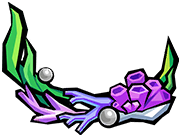


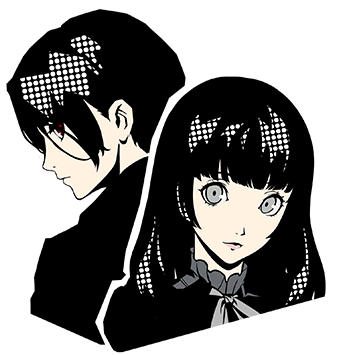
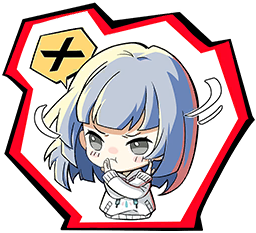




New Miyu Sahara-related assets added with her Confidant in Version 2.1.3!
The first two images are the profile icon borders unlocked through her Confidant, and the third image is the profile background unlocked that way.
49 notes
·
View notes
Text
Option 1:
Enemy: The Barbarians in the Hungry Trout (Triplets' Edition)
Episodes: Trinyvale X Bahumia Mini-Arc: Ep. 01: The Triplets Take Moonstone
Time: 23:09-28:02
Finish: Onyx (Kruk and 2 minions), Jens (last minion)
Notes: Nyack throws drinks in their face to start a fight over their room in the Inn and doesn't even get a turn in combat. Onyx smites and obliterates people in one hit. She doesn't even take her second attack. (Jake: We're doing cleave rules, right?) Jens then takes his three attacks. They haven't even agreed to help Denny yet.
Propaganda: (anonymous) they are SO over powered it’s funny. onyx takes out most of the barbarians in one hit. just makes it so clear that these characters are so overleveled for the setting and that this is fun time play time not serious peril play time
Option 2:
Enemy: Chosen Airship (15 people of various strength)
Episode: C1 E19: The Purge
Time: (ads) 30:03-53:55 (Cobb's last death save: 1:31:45-1:33:33)
Finish: it's a lot of scrubs so a lot of cleave and NPCs get most of the kills. Matty Big Crits finishes the Captain though.
Notes: Splitting the party couldn't possibly go wrong! Cobb and Hardwon face off against 15 people with 3 White Nights. They're immediately so fucked. Hardwon goes down so fast and most of the encounter is Murph fighting himself. Matty Big Crits makes his mark. Death's door is where Cobb is most comfortable.
Propaganda: (anonymous) Matthias of House Crit! An early instance of Murph refusing to tone down an unexpectedly lethal fight. Jake’s nat 20 death save for Cobb was spectacular
23 notes
·
View notes
Text
trial of Gaius Rabirius
date: 63 BCE, after trial #220 charge: possibly a pecuniary case before people in comitia tributa (various offenses) defendant: C. Rabirius sen. advocates: Q. Hortensius Hortalus cos. 69 (ORF 92.XIV) M. Tullius Cicero cos. 63 (Sch. 20) prosecutor: T. Labienus tr. pl. 63 (ORF 133.I), pr. by 59
Cic. Att. 2.1.3; Rab. Perd.; Pis. 4; Suet. Jul. 12; Dio 37.26-27; see also App. BCiv. 1.32; Plut. Vir. Ill. 73.12
This case, along with #220, constitutes the most difficult legal conundrum of all the trials in this period. Only one possible solution has been presented here, according to which the extant speech of Cicero was delivered at this trial, which was ended by the raising of the flag on the Janiculum. This signified an enemy attack and the suspension of civilian business.
51 notes
·
View notes
Text
Since the theory of signs is a language of its own and thus a system of signs itself, this theory should ideally be applicable to itself, being able to analyze the very system of signs used for the investigation of signs. In the discovery of this self-reflexivity of semiotics, there has been surprising alliance between the otherwise antipodean semioticians Morris and Kristeva. Morris describes semiotics as being both a science and an instrument of the sciences, a metascience and a "science coordinate with the other sciences" (1938: 2; Morris 2.1.3). Kristeva discovers this self-reflexivity when she describes semiotics as being both a metalanguage (being a "science of the text") and an object language (being a "signifying practice" like other languages). More recently, in the context of mathematics and logic, Hofstadter has characterized this type of antinomy as "bootstrapping," the necessity of having to lift oneself by one's own bootstraps (1980: 24). Kristeva's proposal for an escape from this antinomy was to turn semiotics into ''an open path of research, a constant critique referring to itself in autocriticism."
Winfried Nöth, Handbook of Semiotics
11 notes
·
View notes
Text
patch notes 2.1.3: fixed bug that allowed infinite upscaling of crazy bones without reducing throwing speed
3 notes
·
View notes